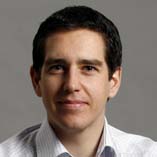In today’s digitised world, Facebook is a real phenomenon and one that has completely changed the face of “social networking”. Clemens Költringer, a researcher and lecturer at the Department of Tourism and Hospitality Management at MODUL University Vienna, answers some of the essential questions about Faceboook and its impact on city marketing.
\n
Facebook: What goes through your mind when you hear that word?
\n
What do 250 million users mean to you?
\n
According to the Population Reference Bureau, the world’s most populous nations are China, India, The United States, Facebook, Indonesia,… Facebook? With more than 250 million active users, Facebook would be the 4th largest country in the world. And the social network is still growing – each month, there are more than 900 million photos and 10 million videos uploaded, 4 billion links, stories or status reports shared, and more than 2.5 million events created.
\n
The sky is the limit – unlike countries, Facebook is not constrained by geographical borders. Facebook is a global and multicultural meeting point – a destination or market that consists of human beings, not demographic sectors. Users from all over the world have the opportunity to share and connect with each other.
\n
\n
What is the role of online media and especially user-generated content in tourism?
\n
Over the last few years, the internet has become one of the most important sources of information for travellers. Today, tourism-related information provided through online media complements, and sometimes substitutes, traditional information sources whereby recommendation by friends and relatives (word-of-mouth) is still the most influential source of information when it comes to trip planning. This recommendation process is increasingly carried out online. Thus, travellers are not just consumers, but increasingly producers of travel related content which they share on their websites, blogs and within their social networks. Recent research has shown that travellers make extensive use of such user generated content for planning their trips. It is important to understand that information provided by travel communities and blogs is considered to be an electronic form of word-of-mouth, which is the most influential source of information when making a travel purchase, in contrast to marketing driven information.
\n
\n
How does a destination benefit from joining the ECM Facebook project?
\n
Social networking platforms provide companies with a direct link to the customer, it is about communicating with people, trying to create relationships and talk to those people who have shown an interest. Since tourism is highly emotional, people enjoy talking about their travel experiences. They report where they are planning to go, where they have been, what they liked, what they disliked; they share experiences, photos, videos, stories and recommendations. The question is whether you engage in this discussion and help your guests to plan their perfect trip.
\n
Social Networking is considered to be the ‘Art of Listening, Learning and Sharing’ (Brian Solis). The first step is to listen to your customers. Find out what they are writing about your destinations and products. Social networking is a great opportunity to evaluate the service provided at your destination, to learn about future demand, and it enables you to start an improvement process.
\n
It is essential to try it yourself in order to understand the dynamics of social networking. If you start to answer questions and share your expert knowledge about your destination among the community, you will create awareness and start to establish relationships which spread the word about your city. It is an opportunity to complement traditional communication channels and engage in a customer driven, not marketing driven, conversation which is considered much more trustworthy and influential.
\n
Social networking sites are much more than social playgrounds for the younger generation. Your guests, prospects, and employees are exploring and extending their relationships there. Ignore communities like Facebook only if you believe your customers are not there – and there are few instances where this will be the case.
\n
\n
\n
ECM’s fanpage has been designed to visualise the network of European Cities to a wider audience and provide the latest, up-to-date information about news and ongoing events in the destinations. This process is completely automated and existing content is efficiently redistributed within the social network. The short video we have produced gives an insight into the opportunities provided for Facebook users on the one hand, and European Cities Marketing members on the other hand in order to create visibility for their destinations.
\n
It should be a starting point for members to familiarise themselves with the social community and encourage European cities to explore the possibilities of social networking for their destinations.
\n
\n
——————————————————————————————
\n
Clemens Költringer is a researcher and lecturer at the Department of Tourism and Hospitality Management at MODUL University Vienna. He has substantial operational experience in the tourism industry based on his work within destination management and marketing organisations as well as consolidated tourism training. His research interests are in the areas of social software and “Web 2.0” technologies (weblogs and social communities), information exchange and search, IT & Tourism.
\n
——————————————————————————————-
\n
Screencast presenting the ECM Fanpage on Facebook
\n
ECM Facebook fanpage
\n
\n
